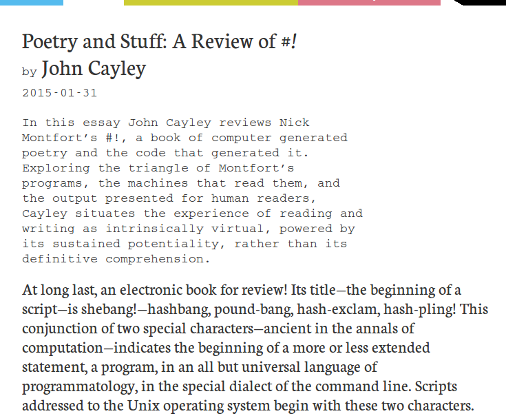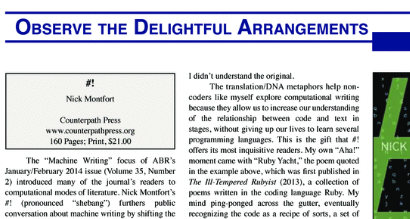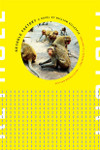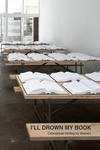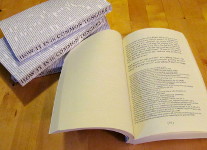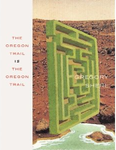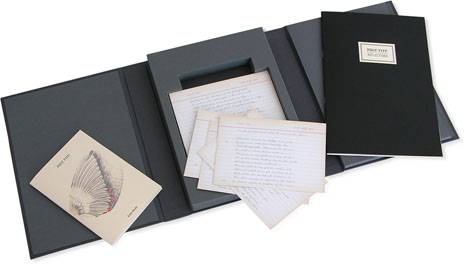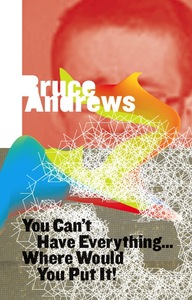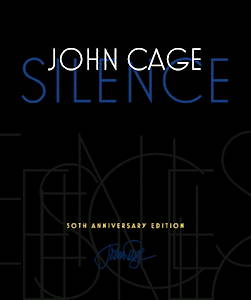To continue the trend of three-letter publications presenting reviews of #!, ebr (Electronic Book Review) has just published a review by John Cayley – an expert in electronic literature, an accomplished cybertext poet, a teacher of e-lit practices, and someone who has created digital work engaging with the writings of Samuel Beckett, among other things.
It would be difficult to ask for as thoughtful and detailed a review as Cayley provided. Nevertheless, now that ABR and ebr have offered reviews, I do hope that IBR, OBR, and UBR will follow suit.


